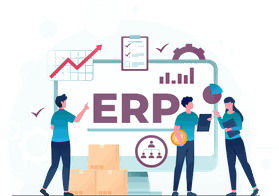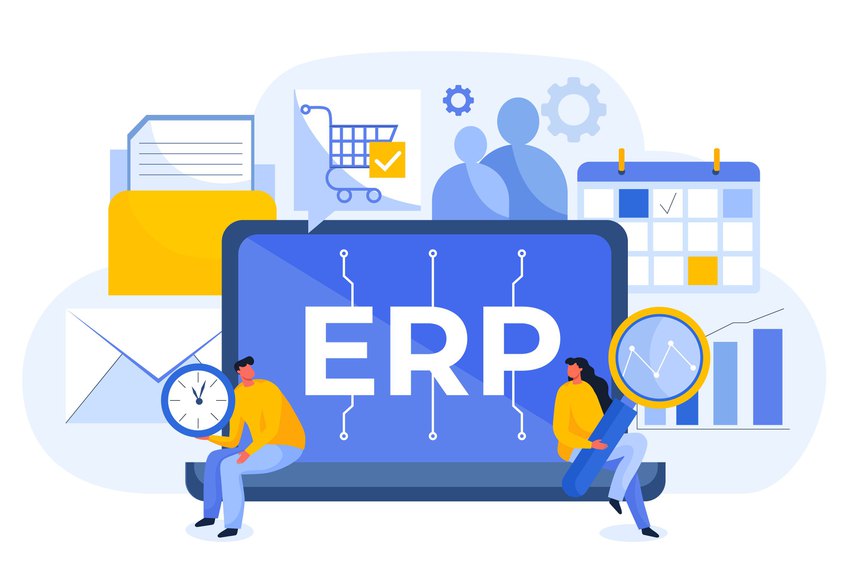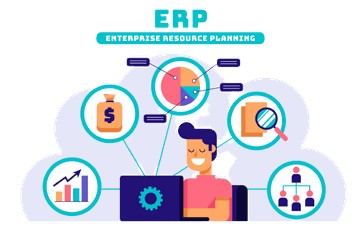One of the biggest considerations of companies in Enterprise Resource Planning (ERP) implementation is how much it will affect their current processes. Our stand has been that you are considering implementing an ERP because you believe your current processes need optimization.
An ERP can improve all aspects of your business, but many implementations have issues. There are several reasons for this, but in this piece, we will debunk the myths or popular lies about them.
Here are nine ERP implementation myths and their truths you should know.
Top 9 ERP Implementation Myths
Myth 1: ERP is only for big businesses
In the past, ERP solutions are typically implemented by big organizations. But nowadays, businesses of all sizes can benefit and explore Enterprise Resource Planning solutions thanks to the growing options made possible by technological innovation.
With the advent of cloud-based software, most significantly, an ERP exists for any type of business. Because every company has resources it needs to manage, a resource management system, in other words, an ERP, becomes necessary.
Today, ERPs come in different sizes and shapes, and choosing the right one for your business is vital for longevity and effective implementation.
Truth: Today, SMEs can benefit from an ERP system without investing a fortune.
Myth 2: One ERP solution fits all
One ERP solution cannot fit all types of business needs. A manufacturing company, for instance, will have unique needs that will be different from a retail business. While both might need an ERP to improve their processes, the customization level, and required features will definitely differ.
Hence, understand your business need and communicate that to a competent ERP partner so they can recommend the right solution.
Truth: Each business needs to determine the ERP solution that will serve its purpose.

Explore the right ERP for your industry
Myth 3: The new ERP will do everything you want (lack of requirement definition)
Most ERP solutions, like Odoo, can manage all essential business processes. But it is also true that each business is different. Hence, the importance of properly defining your requirements and scope even before approaching an ERP partner will help avoid issues in the future.
Truth: The purpose of an ERP system is to improve your productivity, but you must define the requirements for the new system. It may not do everything you expect it to do without further customization from an experienced partner.
Myth 4: The ERP will work the same way as the current system
The ERP solution you intend to implement may not work like your present or previous solution - that is not a good or bad thing. It simply means that the new system does its job differently, and when this new process saves time and resources, your business will be grateful for it.
Truth: The new ERP might work differently from your current system. Isn’t the essence of an ERP system to get work done faster and easier than your previous one?
Myth 5: The ERP partner will do everything for you
Another myth we have encountered is companies that believe their ERP partner will handle all areas of implementation. Not only is this false, but it could also be detrimental to your business's success.
You have to explain your business cases to your partner, and it is their responsibility to provide the path forward. This can include refining the current processes, among many others. You may also be required to provide a solution sponsor, a person, or a team to represent your company and its values with the ERP partner.
Truth: Both parties have responsibilities. Hold your end and let your partner hold theirs.

Myth 6: ERP takes too long to implement
Due to the complexity of ERP implementations, the project timeline can be impacted by several factors, including the size of the business, management expectations, degree of customizations, number of expected users, the scope of implementation, and a host of others.
A reliable ERP partner will be able to give an estimate of the implementation once all requirements, scope, and resources are sorted. Typically, ERP implementation can take a few weeks to several months.
Truth: ERP implementation schedule depends on several factors.
Myth 7: We don’t need to plan because things will change during the project anyway
Implementing an ERP can take several turns due to many unforeseeable factors - executive support and sufficient testing, among others, but that is not to say you shouldn’t plan.
Planning helps you meet your goal, promotes mindfulness and positivity, and reduces stress. Planning for your business ERP implementation also helps to assess your goal to see if it is realistic.
Truth: Plan for every detail of the ERP implementation with your partner.
Myth 8: ERP, CRM, SCM, and MRP are all the same
Enterprise Resource Planning (ERP), Customer Relationship Management (CRM), Supply Chain Management (SCM), and Manufacturing Resource Planning (MRP) are different systems with different features.
While others’ scope is narrow with specific goals, an ERP’s scope is broad and covers multiple business processes. While ERPs nowadays encompass the features of these other systems, they can also all be implemented separately depending on the company’s requirements.
Truth: They are different systems targeting different business processes.
Myth 9: ERP belongs in the IT department because it is an IT system
Enterprise Resource Planning input and ownership are not restricted to the IT department. It is an entire business asset valuable across departments and throughout the corporate hierarchy, from field workers to C-suite executives.
While an ERP implementation and maintenance might be with the IT department, its success is only evident when every business function plays its role, especially with usage.
Truth: ERP is beneficial for all business units.

Do you want to experience how an ERP works?
Implement necessary applications first
Implement necessary applications first
You can look for an ERP solution for specific issues based on your business needs. If your business needs to accurately manage inventory orders or better understand financial data, implementing inventory and accounting management systems could be all that you need to get started with a life of ease with an ERP solution.
The point here is that you don’t have to use applications you don't need yet. However, this form of implementation can only be possible with modular ERPs like Odoo.
Establish key requirements and KPIs
A business where the ERP requirements and KPIs are not clearly defined is doomed for failure. What exactly is your goal, and what results do you want to achieve with an ERP implementation?
Do you want to increase customer satisfaction and business productivity or drive revenue growth? Establish these requirements and KPIs with your employees and ERP partner. Doing that increases business efficiency and provides a sound basis for decision-making.
Document implementation processes
An ERP implementation documentation is a roadmap and practice guide for business success. While this is chiefly the responsibility of your ERP partner, you should also be aware of each step taken to reach your goal.
Doing this helps everyone performs at their best, and every stakeholder is clear about expectations. Documenting your processes also ensures efficiency, consistency, and standardization.
Solicit input from all user groups
A primary reason for ERP implementation failure is a lack of commitment to the system. And this usually happens because the user groups are unaware of a solution until it is implemented.
Before implementing an ERP, solicit input from all user groups. That way, you can ensure employee engagement and open up a positive feedback environment.
Conclusion
The line between ERP implementation myths and facts can be difficult to discern. But once you and your ERP partner do all that is required to ensure success, you will often discover that the myths are nothing more than myths.
The ERP implementation best practices you should follow then are implementing only necessary applications, establishing key requirements, documenting processes, and soliciting feedback.
